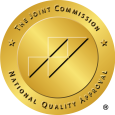Drinking alcohol may be fun at parties, but you can’t forget that it’s going through your system.
Your pancreas, among other organs, will be susceptible to damage if you lose sight of your alcohol consumption.
That said, you have to take care of your pancreas even if that means regulating your alcohol. Need to know more about how your drinking habits affect it? Let’s dive in.
Alcohol’s Impact On The Pancreas
What alcohol does to your pancreas is this: it overworks it.
The most important piece of information from this article is that your pancreas manages your insulin and digestion. Your pancreas is the primary worker of your overall metabolism.
When you drink alcohol, the levels of certain enzymes in your body drastically increase. This disrupts the regulated levels of enzymes in your body, and now your pancreas has to work harder to regulate it once more.
Alcohol could also cause a build-up of cholesterol in your body, which could block some digestive enzymes from leaving your pancreas. In turn, the accumulation of these enzymes could damage your pancreatic tissues.
Either of these instances makes it difficult for your pancreas to function.
Symptoms And Diagnosis Of Pancreatic Issues
Alcohol is not inherently bad, but it is when you go overboard that harms you. You can trust your body to send you signals when you’re nearing the limit.
Here are some of the symptoms of pancreatic issues you could look out for to keep safe from alcohol-induced ones:
- Abdominal pain
- Weight loss
- Nausea
- Vomiting
- Digestive disruptions
- Fevers and sweating
You might notice that a lot of these symptoms are similar to other health issues. That’s why diagnosing pancreatic issues often requires imaging tests (CT scans and MRIs) or endoscopic procedures (ultrasound); this is how professionals can closely look at your pancreas and observe any abnormalities.
You may also have to take blood tests so that they can assess your overall pancreatic function. If they notice that some enzymes are too low and others too high, then that’s a good sign of abnormality.
Long-Term Risks And Complications
If you’ve been drinking alcohol for a while, your pancreas has already been strained and overworked. This makes it vulnerable to inflammation-related health risks like chronic pancreatitis.
However, alcohol-induced pancreatic damage has more long-term risks and complications beyond the pancreas itself. Pancreatic damage is also closely linked to an increased risk of developing diabetes. This is because pancreatic damage disrupts the regulation of your blood sugar levels.
When pancreatic issues are left untreated, you could also be at risk for complications in heart and blood vessels, thereby also increasing your risks for cardiovascular issues such as coronary artery disease.
Prevention And Healthy Practices
Moderating your alcohol consumption is more than just maintaining your current health and well-being. After all, pancreatic damage caused by chronic alcohol consumption affects the rest of your body.
Here are some good practices to make your prevention and recovery more sustainable:
- Moderate your alcohol intake. Sudden withdrawal could be both difficult and dangerous for you. Consider reducing your intake over time with the help of a professional.
- Prioritize a balanced diet. Focus on eating fruits, vegetables, and whole grains for more fiber.
- Exercise regularly. Engage in walking, hiking, or running to support your overall metabolic function. High-intensity workouts in short bursts may also boost your pancreatic health.
- Manage your stress levels. Chronic stress could promote inflammation and could negatively impact your pancreatic health. Practices like meditation and deep breathing exercises could go a long way.
- Attend check-ups regularly. Routine check-ups with healthcare professionals could allow early detection of pancreatic issues and timely intervention.
Adapting to all of these immediately could be difficult, but remember that small and consistent efforts will help you slowly build and regain your pancreatic health.
Treatment Options
Alcohol-related pancreatic issues often require a combination of medical intervention, lifestyle modification, and rehab support.
If you’re currently experiencing the consequences of alcohol consumption, know that there are a variety of treatment options you can consider.
Medical Intervention
Medical intervention for alcohol-induced pancreatic damage strongly depends on the severity of your case.
Mild Cases
Medical treatment often includes pain relief medications, enzyme supplements for digestion, and nutritional support.
This combination ensures that you can undergo succeeding treatment (if any) comfortably and safely.
If you stay at the hospital for observation, mild pancreatic damage typically requires about 5 to 10 days of hospital stay.
Severe Cases
In severe cases, you may also have to undergo hospitalization. During your stay, healthcare professionals may prioritize treating dehydration, drainage of abnormal fluids, and fighting bacterial infections that may have occurred.
Surgical intervention, such as endoscopic treatment or removal of damaged portions of your pancreas, may also be considered in more advanced cases to improve your overall pancreatic function.
During and after these processes, ongoing medical supervision and support are strongly recommended to monitor your progress and treatment plans.
Lifestyle Intervention
Your doctors will help you slowly progress through alcohol sobriety. You might enter recovery treatment plans, most of which involve intervention, detoxification, and medication.
You will also have the option to choose between inpatient or outpatient care, whichever will cater to your needs.
Apart from addressing your alcoholism, professionals will also guide you in switching to a low-fat diet and physical activity to support your overall health.
Support Networks
Alcohol-induced pancreatic damage requires holistic care. After all, this means that you are dealing with both the difficulty of alcohol addiction and the consequences of such addiction. It can’t be easy, and it will also be challenging during your recovery period.
You could also consider joining counseling, support groups, or therapy for emotional support, insights on coping strategies, and an accepting community where you are not discriminated against.
They may not directly assist in your pancreatic damage, but support networks could bring you closer to a sustainable recovery of your overall health.
Conclusion
Recognizing alcohol’s impact on your body is the first step to treatment. Educating yourself on the symptoms of pancreatic issues, the long-term risks, and potential complications will guide you during your recovery.
This may all seem overwhelming, but remember that small steps toward recovery–a glass of whiskey less, a bowl of salad more, or ten minutes of walking more will pave your way toward a healthier body.
If you’re ready to take these steps more professionally, contact Another Chance to learn about your treatment options.






